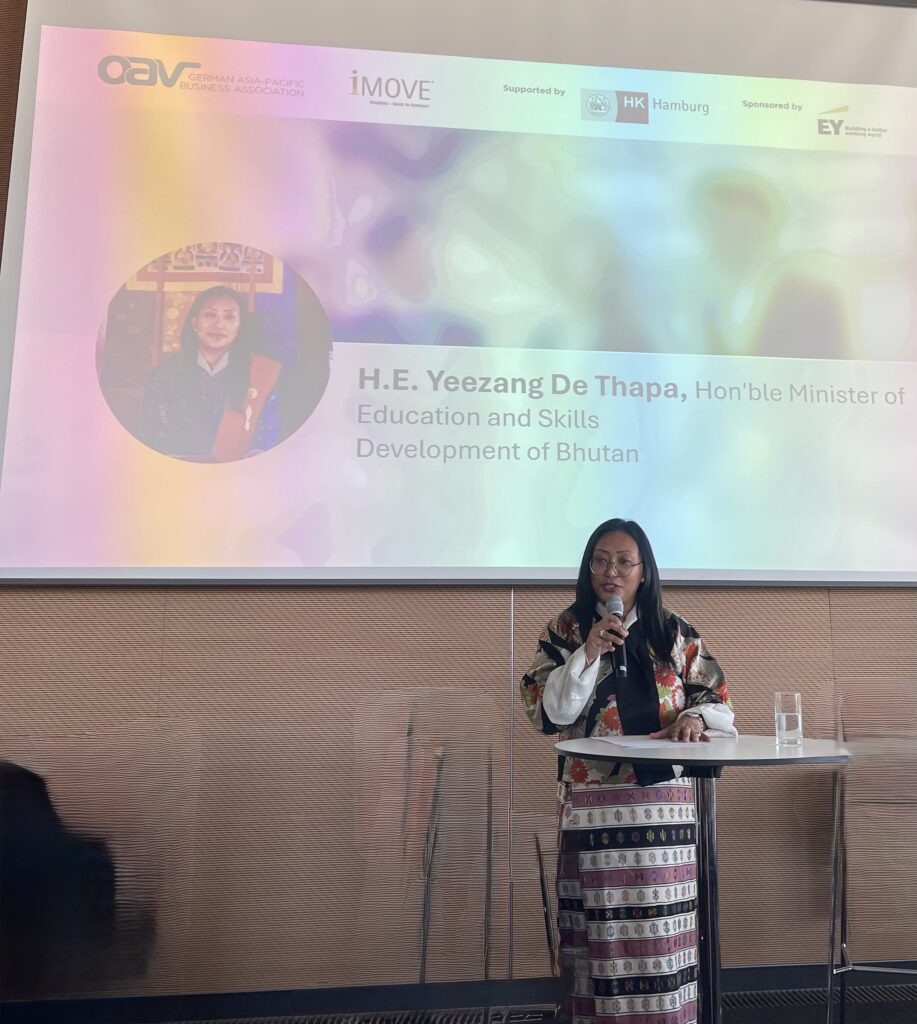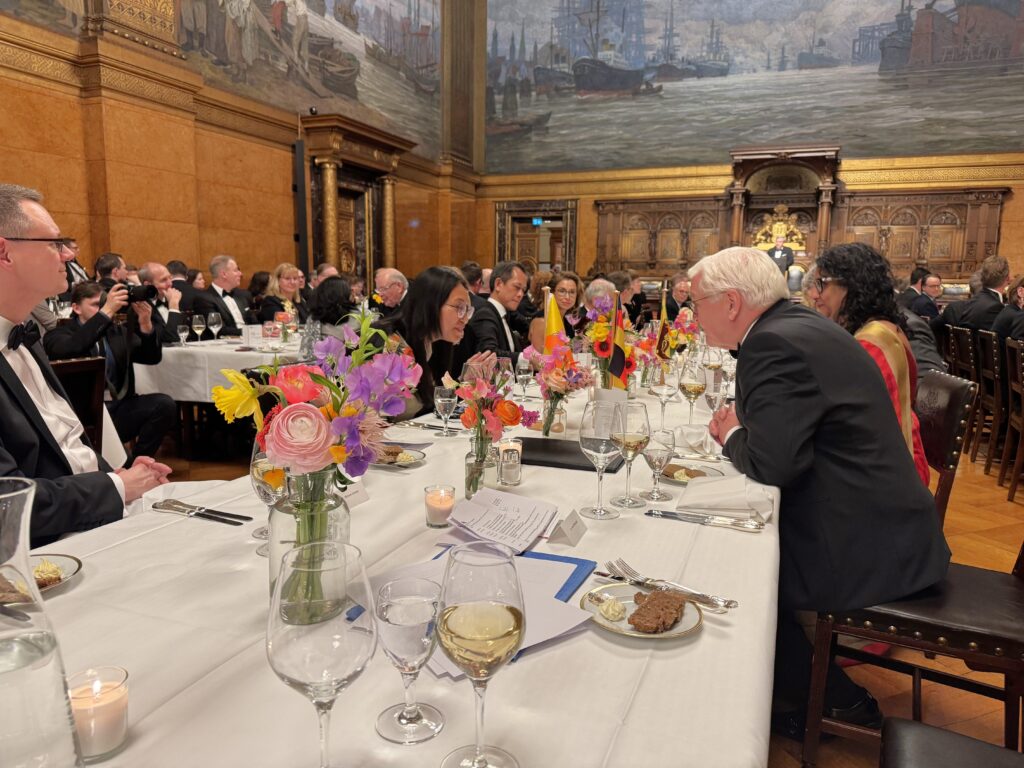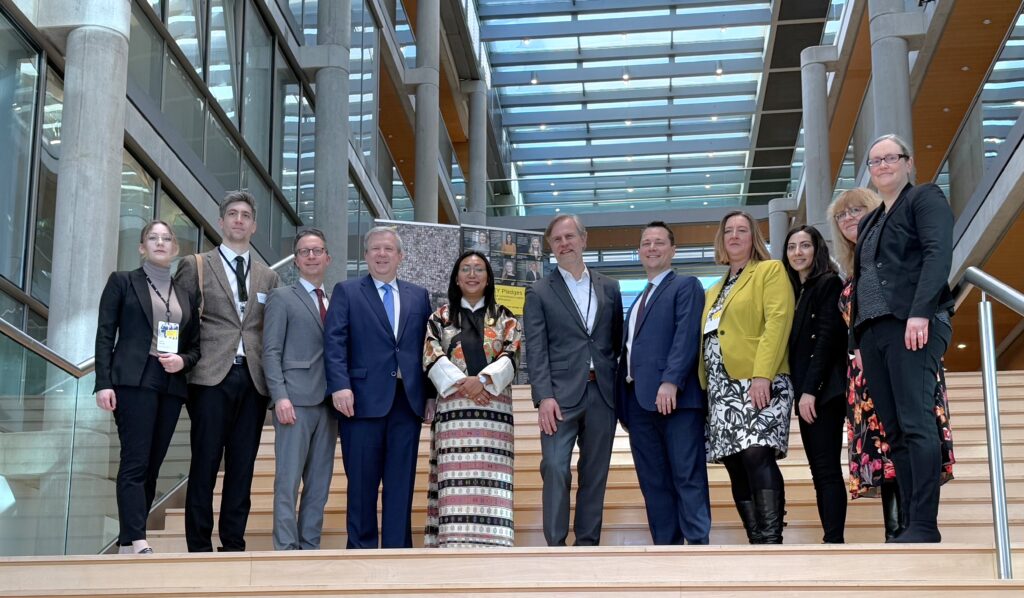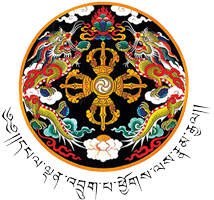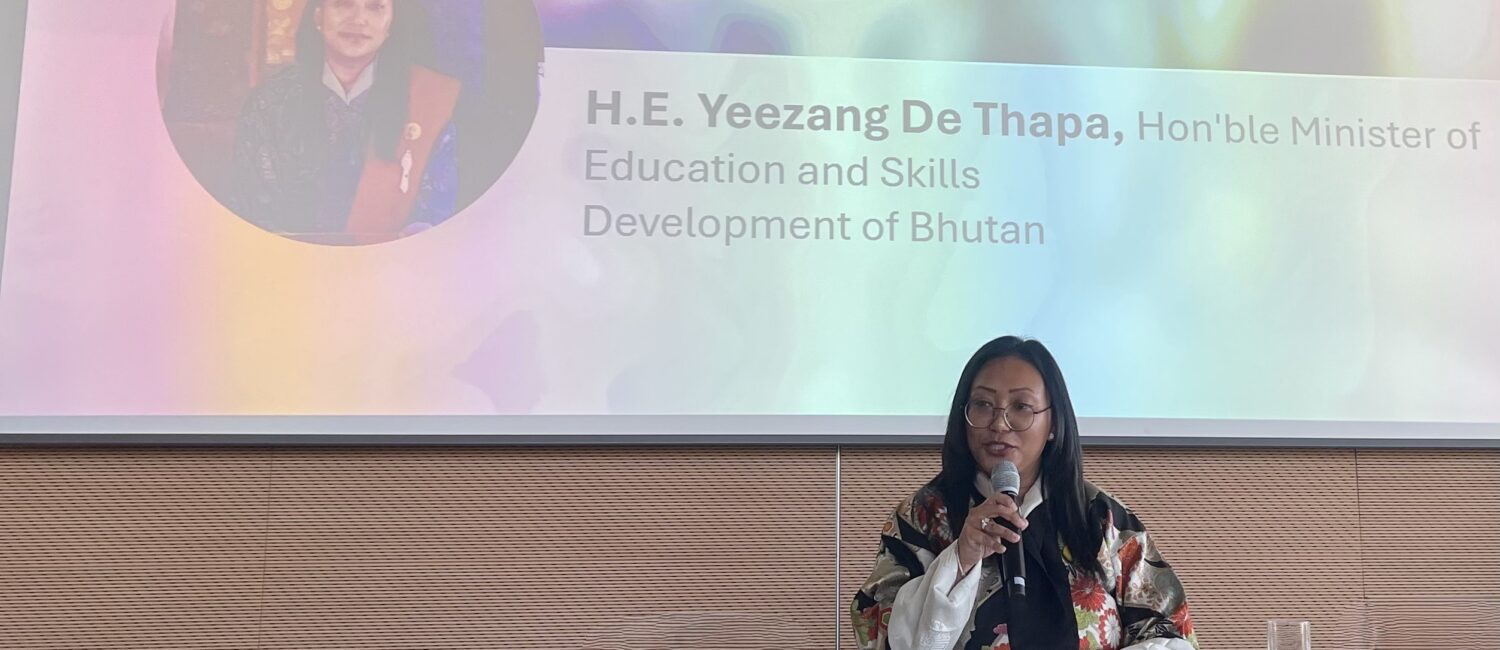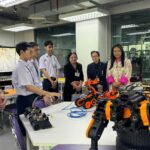At the invitation of Dr. Arnd Nenstiel, Chairman of the German Asia-Pacific Business Association (OAV) in Hamburg, the Hon’ble Education and Skills Development Minister, Yeezang De Thapa attended the German-Asian Forum on Vocational Education & Training on 28th March 2025 as one of the keynote speakers.
In her keynote address, Lyonpo highlighted Bhutan’s commitment to transforming its Technical and Vocational Education and Training (TVET) sector as a driver of economic growth, technological advancement and sustainability. Rooted in His Majesty King Jigme’s Royal Kasho on education, the reform vision emphasises critical thinking, lifelong learning and technological proficiency. Despite training over 3,300 youth annually through eight Technical Training Institutes and two Zorig Chusum Centers, the sector faces a mismatch between education and industry needs, contributing to youth unemployment and reliance on foreign labour-an issue prioritised under the 13th Five-Year Plan.
Bhutan’s TVET transformation strategy focuses on four pillars: Place, Product, People and Process aiming to upgrade infrastructure, integrate Industry 4.0 technologies, enhance educator development and strengthen governance. Initiatives like Gyalsung (National Service) and the De-suung Skilling Program equip youth with essential skills while collaborations with Germany’s Frankfurt Chamber of Skilled Crafts and the new Vocational Training Institute in Bumthang reinforce international partnerships. Lyonpo reaffirmed Bhutan’s ambition to position its TVET sector as a regional center of excellence by fostering global collaborations to enhance training, industry linkages and institutional capacity.
Lyonpo also participated in a panel discussion titled “Building Skills: Collaborative Training for a Specific Key Sector,” emphasising Bhutan’s efforts to integrate its 13 traditional arts (Zorig Chusum) into the modern economy. She underscored the significance of Zorig Chusum encompassing crafts like wood carving, weaving and masonry not only as a pillar of Bhutan’s cultural heritage but also as a driver of economic development. To ensure their relevance, the government integrates these skills into vocational training at institutions like the National Institute for Zorig Chusum (NIZC), blending traditional craftsmanship with modern business practices. Support initiatives including digital platforms, market access programs and sustainability-focused innovations, help artisans reach global markets and adapt to eco-friendly industries.
Lyonpo highlighted successful models where traditional skills intersect with emerging sectors such as sustainable architecture using rammed-earth techniques, cultural tourism linking rural artisans to luxury markets and the Royal Textile Academy’s collaborations with international designers. Additionally, the Bhutan Bamboo Initiative promotes eco-friendly product design reducing plastic dependence. By merging tradition with innovation, Bhutan is ensuring its artistic heritage remains a vital part of its evolving economy.
On the sidelines of the Forum, Lyonpo met with representatives from the Federal Foreign Office, Federal Ministry of Education and other relevant stakeholders to explore the potential for collaborations to strengthen Bhutan’s TVET sector.
The day concluded with Lyonpo’s participation in the 102nd Ostasiatisches Liebesmahl in the evening at Hamburg Town Hall which was also attended by the Federal President Frank-Walter Steinmeier. Ostasiatisches Liebesmahl is an annual German-Asian event where important figures from fields of economics, politics and diplomacy gather.
During her stay in Germany, Lyonpo visited the Chamber of Skilled Crafts Frankfurt Rhein Main and a school/company managed by the Hamburg Institute for Vocational Education and Training in Hamburg to study and understand the German dual vocational education and training systems.
Bhutan and the Federal Republic of Germany established formal diplomatic relations on 25 November 2020.
